Modern life demands a lot from us. When we add in the strain of an unusually stressful few years, it’s unsurprising that experiences of fatigue and even flat-out exhaustion are incredibly common. The right dietary tips to boost energy levels can offer incredible support, helping us to truly thrive amidst everything we have going on.
Fundamentally, food is the fuel we need to produce energy. As such, it’s important that we’re eating enough overall, but also enough of the right nutrients, to support and sustain energy production. Find out how to beat fatigue with these dietary tips to boost energy levels, below.
Eat regularly
Although it sounds simple, many of us struggle to eat regularly throughout the day, given how much is on our (proverbial) plates. If you find yourself often skipping meals, a little pre-planning to refuel regularly can make all the difference, energy-wise. Moreover, taking 15 minutes to sit with something nourishing, can help us feel much more grounded and calm, regardless of what comes up during the day. Most people feel best with three meals and 1-3 smaller snacks throughout the day, but it might take some experimentation to find what helps you feel your best.
Eat enough
Under-fuelling is incredibly common, with many of us underestimating our energy requirements. Along with fatigue and low energy, many other signs and symptoms can also indicate under-fuelling. Simply eating enough at each meal will help ensure that your energy intake is adequate for your unique requirements – if you’re unsure what this should look like, consult one of our wonderful Dietitians for individualised support.
Aim for macronutrient balance
Our bodies require macronutrients – namely, complex carbohydrates, lean protein and healthy fats –to support the healthy functioning of body systems, metabolism and growth. Enjoying a balance of macronutrients in each and every meal promotes a slow and sustained release of energy and greater satiety (or satisfaction) after eating, helping us to feel more energised and balanced. Below is a good guide of what to include with each meal to meet this balance:
- ¼ plate of quality carbohydrates such as wholegrain bread, brown/black rice, pearl barley, potato or wholemeal pasta. This will support sustaining mental and physical energy levels.
- ¼ plate lean protein such as chicken, tofu, fish, lean meat or legumes. This will support energy levels and help keep you fuller for longer.
- ½ plate colourful vegetables – aim for at least 3 colours where possible to provide a mix of antioxidants.
- 1 Tbsp or a thumb serve of healthy fats such as extra virgin olive oil, avocado, nuts and seeds. These will provide a sustained energy release and help manage your appetite.
Stay hydrated
Dehydration is also incredibly common, and can cause fatigue and brain fog. Simply addressing your fluid intake might be the missing piece of your energy puzzle! Refer to our how-to guide to hydration for some helpful tips to boost your fluid intake for optimal hydration (and energy).
For expert dietary support to support you on your personal health journey, book your first appointment with one of our wonderful Accredited Practising Dietitians today.
Written by Caitlin Branch, Student Nutritionist, and Amanda Smith, Accredited Practising Dietitian.



